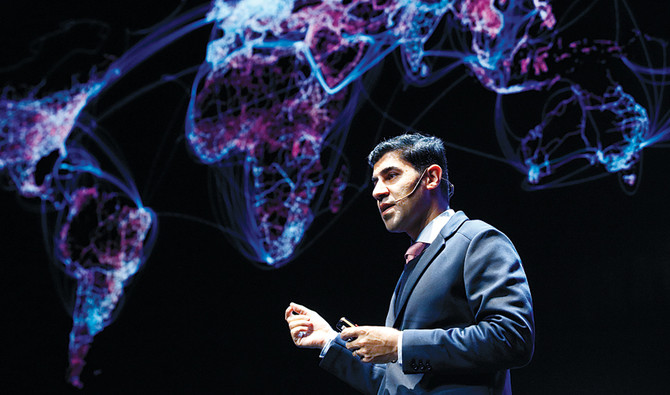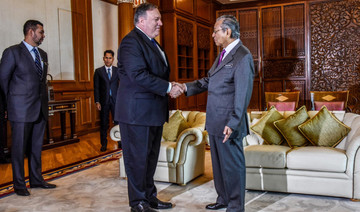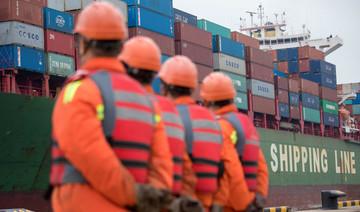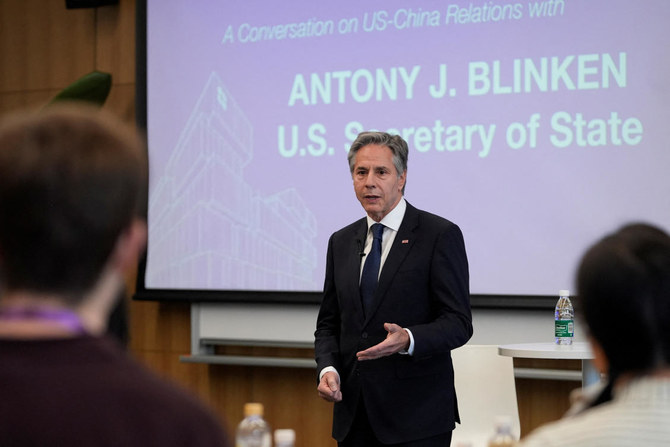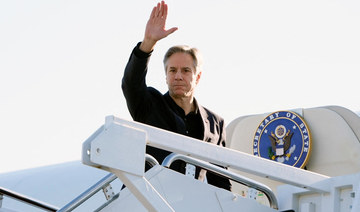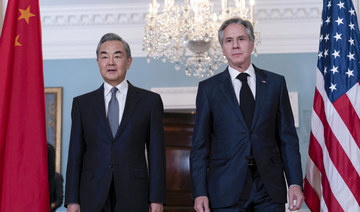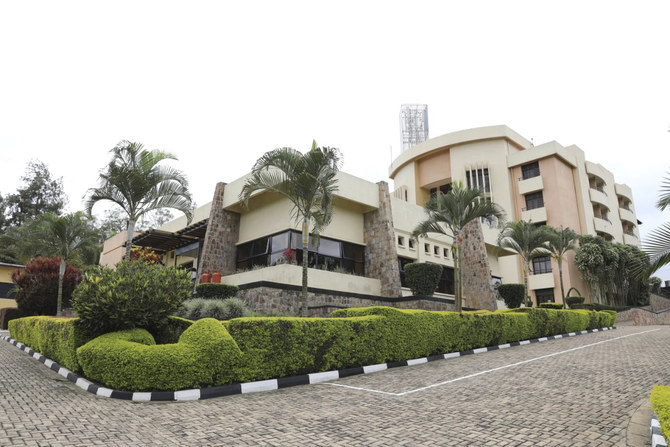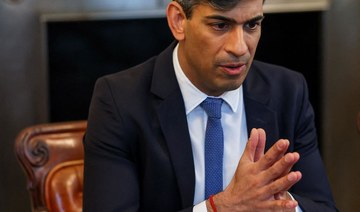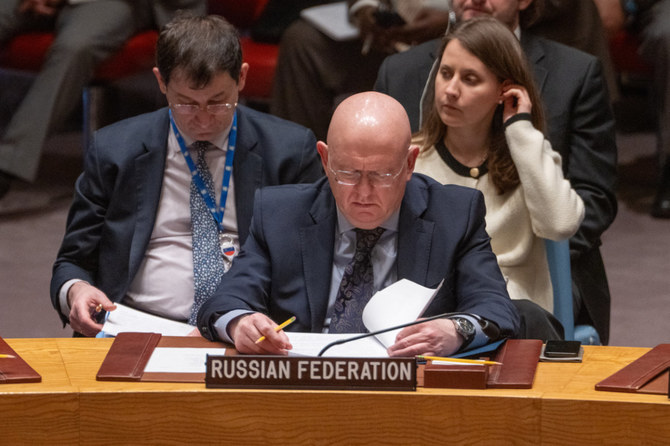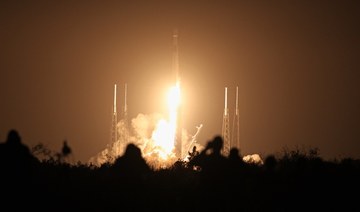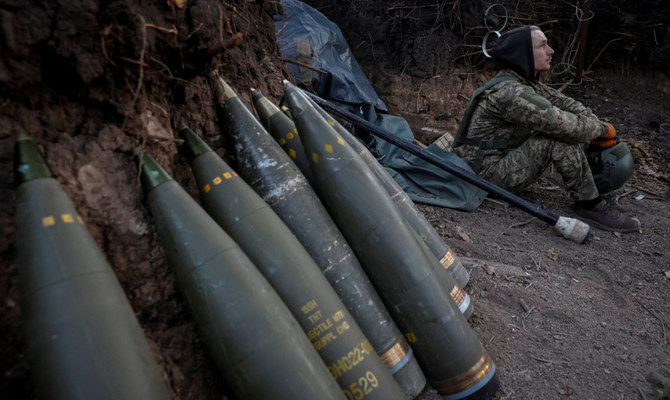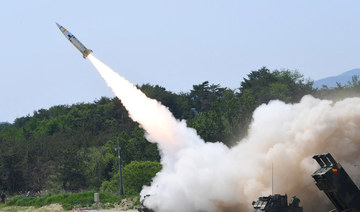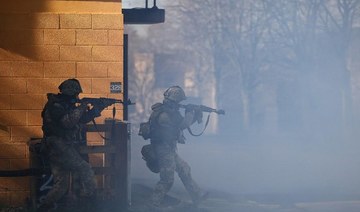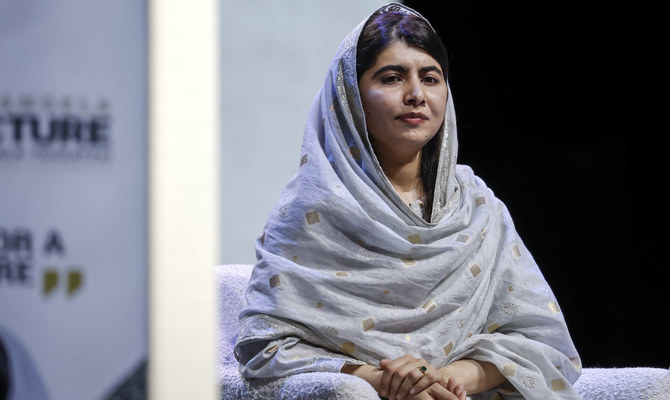DUBAI: Saudi Arabia and the wider Gulf must consider themselves part of Asia, and leaders in the region must understand that their countries’ economies are a vital link in the Silk Road if they are to be major players on the global stage, a world-renowned author told Arab News in an exclusive interview.
In his soon-to-be-released book “The Future is Asian: Commerce, Conflict and Culture in the 21st Century,” Parag Khanna, a leading geopolitical expert, discusses the changing power dynamic that is resulting from the US-China trade war, and writes about how an “irreversibly Asianized” world is seeing its center of gravity shift eastward.
He said leaders must embrace the inevitable Asian future — a megaregion home to more than half of humanity that is coming together and reshaping the entire planet in the process.
Those who are used to an “America First” dynamic need to prepare for a world that is now “Asia First,” and embrace the new Asian system taking shape, he added.
That megaregion, he said, is “much bigger than China.” It is a multi-civilizational order spanning Saudi Arabia to Japan and Russia to Australia, linking 5 billion people and two-thirds of the world’s megacities, six of the 10 largest banks, eight of the10 largest armies, five nuclear powers, and massive technological innovation through trade, finance and infrastructure networks that together represent 40 percent of global gross domestic product (GDP), he added.
Khanna, a global strategy advisor and founder of FutureMap, a data and scenario-based strategic advisory firm, said the Gulf countries are “a pillar in the global strategic order,” and the Western link in the multibillion-dollar Belt and Road Initiative (BRI), which connects regions across Asia, Europe, the Middle East and Africa by land and sea.
Asia, he said, is more significant than China alone as economic powers have gravitated toward each other.
The BRI — potentially the largest ever infrastructure project, with close to $1 trillion being invested across the globe — should be embraced as it connects East Asia to the West, and the Middle East should consider moving away from post-colonial borders and define itself as West Asia, he added.
“Most of the Arab world is, of course, West Asia,” said Khanna. “It’s not the Middle East. There’s no such thing as the Middle East.”
The Middle East is not a “legitimate geographical term,” but merely “a frame of reference for explaining the distance from Britain, the Middle East and the Far East,” he added.
“Because the world no longer revolves around the British empire, this term is no longer useful,” he said.

“Arabs… are starting to realize that they’re Asian. They’re geographically Asian, they’re economically Asian, they’re diplomatically Asian, they’re becoming strategically Asian,” he added.
“Their energy markets are tied to Asia, they trade more with Asia, they’re taking more investment from Asia,” he said.
“I call it the Arab-Asian Nexus. Arabs will never feel like they’re Asian. There are obviously massive cultural diversities, so I don’t expect Russians, Arabs and Japanese to feel like they’re Asian,” he added.
“The Arab-Asian Nexus is recognizing that as the Western anchor in the new Silk Road, Arab countries want to much more broadly embrace this ‘Asianization’… to benefit from it and profit from it to diversify economies, to increase exports, to attract tourism,” Khanna said.
In his book, he writes that of the $30 trillion in extra middle-class consumption expected by 2030, only $1 trillion will come from the West.
Power, he said, follows money, so the irreversible rise of Asia will have an acute impact on the global balance. In the new Asian world order, the East is “turning its back on the West,” he added.
“They’re ending ties with the West in many ways, either voluntarily like Turkey or involuntarily like Iran,” he said.
Khanna addressed roadblocks for the Arab world that need to be overcome to ensure that its nations are a vital part of the new Asian megaregion.
“The rupture and rifts in the Arab world right now are very unproductive... The GCC (Gulf Cooperation Council) also needs to advance various areas of coordination: Military cooperation, development of customs, energy transit cooperation, transportation and infrastructure.”
Khanna said a focus for the Gulf should be pushing forward the GCC monetary union at a time when each GCC currency, even with the dollar peg, is under a lot of pressure and reserves are declining. “They need to move toward a common central bank because currency is important,” he added.
“The Gulf region is the geographic center of the world — the intersection of Europe, Asia and Africa — and the GCC is a pillar in the global strategic order,” he said.
“But the truth is that the GCC is only millions of people and billions of dollars. If you really want to roll with the big boys — if you want to truly be an anchor of the global system — you need to get yourself to the stage where you’re trillions of dollars,” he added.
“You do that through a lot more connectivity with Asia, by getting your house together and integrating your region so you’re not just a small piece of a puzzle but a big piece of the world global puzzle,” Khanna said.
“That’s what would really bring the GCC to the next stage, to really be a global anchor in the next stage of the whole system as a coherent region,” he added.
“Regions matter. Collectively, the 10 countries in South East Asia are 700 million people. They have a larger GDP than India. They have more foreign investment coming in than China does. So together you can be stronger, and that’s an economic fact.”
Khanna said his book aims to “get everyone on the same page” about the new Asia-led world. “What I’ve described isn’t a fanciful vision. It’s not a call to action. It’s an economic and strategic fact. Yet we don’t have the terminology and we haven’t caught up mentally,” he added.
“In the last 20 years, all books about Asia have only been about China. So the first and foremost point of this book was to recover the true Asia, which has 5 billion people. China is only 1.5 billion of this 5 billion people,” he said.
“You’ll see a lot of changes in the next five, 10, 15 years… The world is heading toward a multipolar state,” he added.
“America remains powerful, Europe remains central, Asia isn’t going to stop its growth. In that sense, the GCC is very well-positioned geographically. It just needs to remain multipolar and maintain strong relations with all sides.”
• Khanna’s book will be available online and in stores in February.


